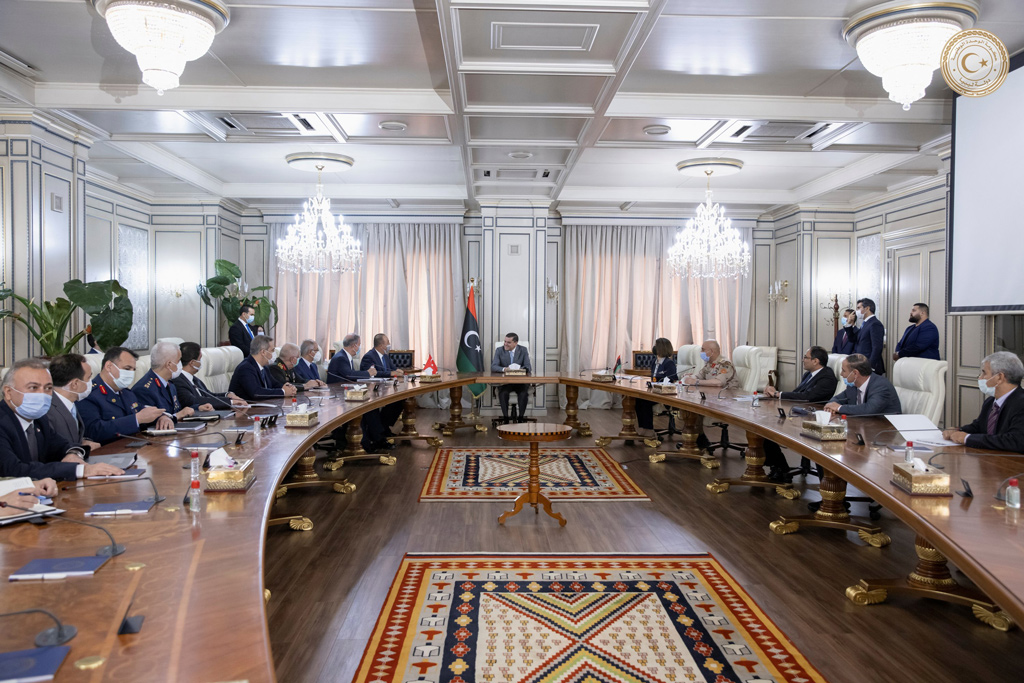Europe's approach
The transition process, which pleases many European governments today, was made possible by Turkey’s intervention. Ankara’s involvement made things easier for Germany and Italy, while France was forced to take a step back. Nowadays, Turkey and Egypt exchange views on their mutual interests in Libya and the Eastern Mediterranean. Yet a challenging process lies ahead for Libya. A political structure must be created to keep the country's western, eastern and southern provinces unified. Other items on Tripoli's agenda include infrastructure projects, improving municipal services and the formation of a standing army. The removal of Russian, Sudanese and Chadian mercenaries, too, is key to stability. The United Nations and European governments rely on diplomacy to facilitate the withdrawal of foreign fighters and mercenaries, including the Turkish military, Wagner Group and other militias. But who should really leave Libya?The Turkish presence
Within the framework of the cease-fire agreement and the Berlin Conference, the withdrawal of foreign powers does not apply to the Turkish military presence in Libya. After all, the Turkish military operates in the country per the bilateral treaty of 2019. Provided that Libya’s government upholds that agreement, there is no basis to compare the Turkish troops with the Wagner Group or other mercenaries. Indeed, Çavuşoğlu made that case very clearly in Berlin, stating: “There are many foreign fighters and mercenaries in Libya. We agree that they must leave. It does not serve Libya’s interests, however, to cease much-needed support, such as military training and advice, which is delivered on the basis of a treaty between two sovereign nations. It would be wrong for third parties to meddle in such bilateral agreements.” Ankara tells others to stop pushing for Turkish troops to leave just so the Wagner Group will withdraw, warning that such pressure could undermine the progress made in Libya. Why should Turkish troops remain in Libya though? Keeping in mind that the folks in Benghazi still find it difficult to transfer power to the GNA, Turkey’s military should be providing both training and advice to help establish a standing army, rather than leave. In other words, the Turkish military presence contributes to the Libyan army’s development and keeps Haftar’s influence at bay. It also protects the fragile transition process and prevents Russia from gaining more ground and building new bases. The fact that Turkey, a NATO ally, voluntarily assumes the role serves the interests of both the European Union and the United States. Calls for the withdrawal of Turkish troops, designed to curb Turkey’s potential influence over the Libyan election, would certainly undermine peace, security and stability in the country.
[Daily Sabah, May 8 2021]








